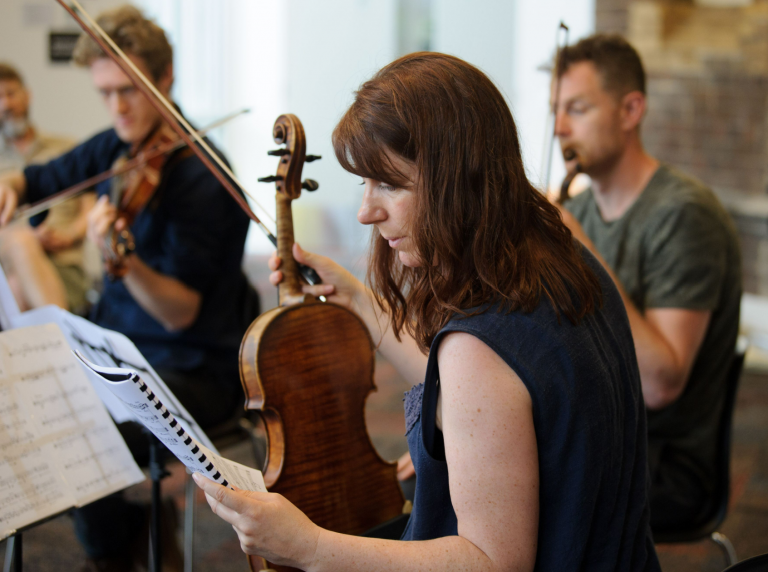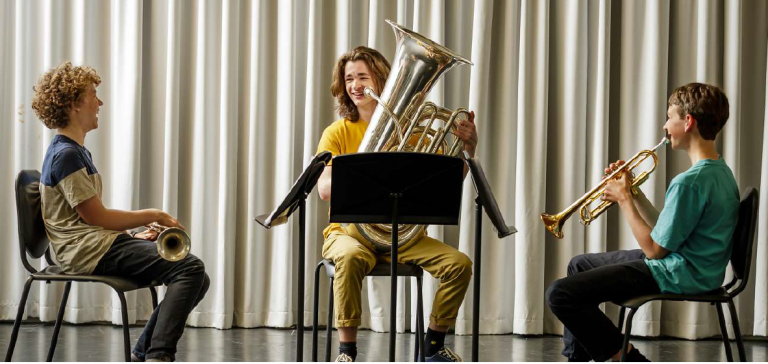Britten’s ‘War Requiem’ – A Message For All Time

Benjamin Britten’s (22 Nov 1913 – 4 Dec 1976) towering multi-layered musical statement, the War Requiem, opus 66, is to be performed in Sydney, by the Sydney Symphony Orchestra, conducted by Vladimir Ashkenazy on November 8th and 9th at the Sydney Opera House.
Premiering on May 30th, 1962, the work was commissioned to commemorate the consecration of Coventry Cathedral, rebuilt after the original medieval Parish Church Cathedral of St Michael was blitzed by the Luftwaffe in November 1940. It is one of a number of performances around the world this year which marks the birth centenary of the composer.
The War Requiem is an electrifying work for many reasons. Not least, it is a work of our times. It is replete with references to events in recent history. The singers for whom it was written and who performed at its premiere died as recently as last year; Britten’s own belief in pacifism propel his writing and choice of text; the author of the text, the poet Wilfred Owen was himself killed in the first World War, a week before the Armistice; the soprano soloist at its premiere had to be replaced because of Cold War politics; Britten’s school, Gresham’s, lost 100 boys in fighting during WW1 – no small number when class sizes were only about 25.
Fast forward to post-war Europe and the horrors of war continued to haunt Britten. He and Menuhin travelled to Bergen-Belsen to perform for its displaced persons; fears of nuclear war escalated through the 1950s and 1960s, and events were building in 1962 which gave rise to the Cuban missile crisis later that year.
Britten’s War Requiem is a work of tremendous profundity, which above all, is a cri de coeur against conflict and killing.
Although Britten faced many controversies in his life, and some of his works were received with hesitation, his genius as a composer, conductor and orchestrator was undisputed. His manuscripts and conducting scores have been meticulously preserved and technology has enabled the gathering of a comprehensive audio and visual archive.
Over the next weeks, SoundsLikeSydney will present a series of news items about the War Requiem and images associated with its history.
As a starter, we’ve noted that the upcoming Sydney Symphony performances replicate Britten’s original choice of an Englishman, a German and a Russian as soloists, representing three of the countries which were at war against each other in the second World War. Peter Pears, Britten’s soul-mate and muse was the tenor soloist, sung by Englishman Andrew Staples in Sydney; Dietrich Fisher – Dieskau sang the baritone role, which will be taken by German singer Dietrich Henschel, Russian soprano Dina Kuznetsova will sing the soprano solo, written for Galina Vishnevskaya but sung at the premiere by Heather Harper, as Vishnevskaya was prohibited by authorities to travel to England for the premiere.
Check out the video link to the mini-documentary about the War Requiem. At around 5’30” you can see Britten conducting Pears in the poignant solo Futility (“Move him, move him”).
Shamistha de Soysa for SoundsLikeSydney©





